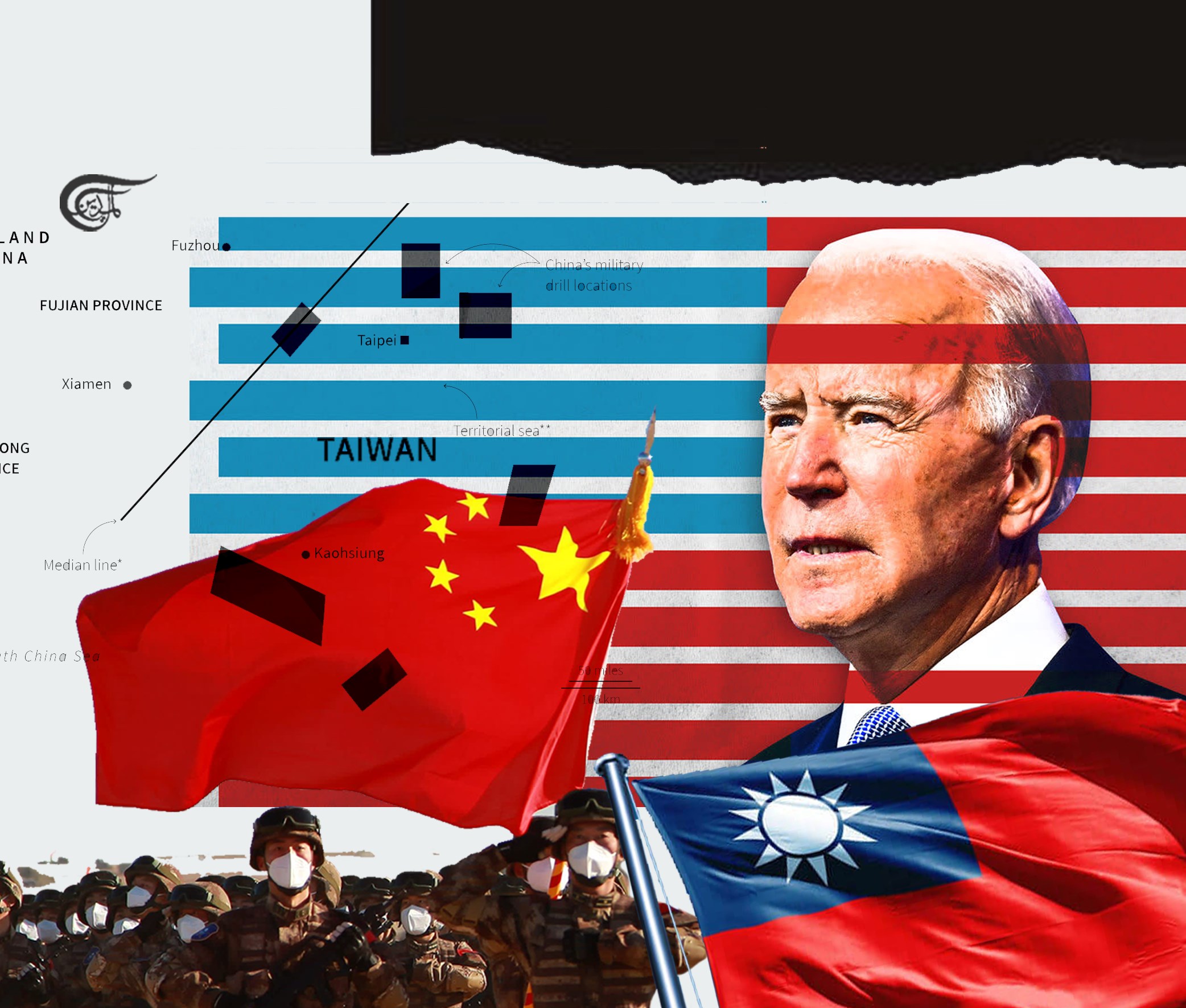The misguided and flawed orientation of the Biden administration’s Taiwan policy
Not once has the Biden administration attempted to break the ice with China or initiate measures that could lead to a thaw in one of the most important bilateral relationships of the century.
-

While the relations between the USA and Taipei are governed by its provisions, nowhere is it mentioned that the US can militarily intervene if mainland China invades or attacks Taiwan
Scholars would argue that foreign policy is a reflection of a country’s domestic state of affairs. A struggling economy with little influence internationally may prompt a state to adopt a conciliatory approach on questions concerning trade, connectivity, aid, and assistance. Conversely, sovereign leaders also adopt a hawkish foreign policy to burnish credentials in the face of plummeting approval rates. The latter applies to the Biden administration which has adopted a more hawkish and assertive foreign policy on China as American democracy is threatened by a dual threat of Republicanism and public discontent. Constantly violating a red line that China has repeatedly warned against reveals a shallow and parochial approach and claims to liberate, aid, arm or back Taiwan against China is not a panacea for peace.
Yet the Biden administration remains defiant. On the 19th of September 2022, the United States President said that it will ‘defend’ Taiwan in the case of an impending Chinese invasion. This is another veiled reference to Washington D.C.’s discreet but systematic approach of violating the ‘One-China’ policy. Recent history, however, is replete with examples where attempting to change the status quo and preventing the peaceful reunification of Taiwan with mainland China has resulted in harsh rebukes, denunciations and vilification of American foreign policy in East Asia. House Speaker Nancy Pelosi’s visit to Taipei in August 2022 for example and subsequent US lawmakers expressing solidarity with the Tsai Ing-Wen leadership are simply bad optics for peace as it unveils duplicity, hypocrisy and a transactional approach adopted by the United States on international relations. Interestingly, the policy of ‘strategic ambiguity’ remains applicable to Taiwan while negating the essence of relations which govern US China relations. A closer examination of where the fault lines lie however, actually reveal exactly where Washington D.C. has gone awry.
Take the Taiwan Relations Act of 1979 as an example. While the relations between the USA and Taipei are governed by its provisions, nowhere is it mentioned that the US can militarily intervene if mainland China invades or attacks Taiwan. Similarly, as per the TRA coming to Taiwan’s defense is not similar to adopting offensive posturing or the American President in the absence of Congressional approval, unilaterally altering the status quo. Yet with US midterm elections looming in November 2022 and the results of the 2024 presidential election slated to be determined by an electoral college system that has been castigated for undermining the popular vote, it is clear that the Biden administration’s Taiwan policy is geared toward generating domestic political capital. Whether that threatens the deterrence equation in East Asia or results in the credibility of American foreign policy being questioned, the Biden administration is simply nonchalant. It considers Taiwanese provocations to be the right course of action.
This course of action, however, underlines a hegemonic and regressive approach that compromises the security of the Taiwan Straits and the wider East Asian region. From a Chinese perspective, such actions are clear violations of the 1972 Shanghai Communique, issued by both sides during President Richard Nixon’s visit to Beijing. The document carries an American acknowledgment that Taiwan is an integral part of China and it is in the interest of the international community to witness both Washington D.C. and Beijing working towards normalization of ties and expressing an interest towards positive, productive and constructive engagement. Furthermore, the announcement of the 1979 Joint Communique on the Establishment of Diplomatic Relations between the two sides also coincided with President Jimmy Carter announcing that the United States would withdraw all military personnel from Taiwan. The final communique signed in 1982 further reaffirmed a commitment to solidify economic, educational and scientific ties between the two countries. Yet the Biden administration in 2022 is negating historical attempts of rapprochement between the United States and China by mirroring the policies of his predecessor, Donald Trump who was regressive, polarizing and demagogic.
Regionally, such policies have little traction as the majority of ASEAN states including Malaysia and Singapore adhere to a strict policy of non-alignment and non-interference in state affairs. On a wider scale, the majority of countries in the international community adhere and respect the ‘One-China’ policy as the bedrock for good, amiable, constructive and productive relations with China. East Asian stability is also anchored in respecting China’s productive role in furthering economic ties which includes spearheading the signing of the Regional Comprehensive Economic Partnership ( RCEP) which by trade volume alone, is the largest trading bloc to date. Even countries with historical frictions with China such as Japan have chosen to partake in regional connectivity partnerships and eschew nefarious designs as the Ukraine war and the pandemic era wreaks havoc on global economic stability.
Not once has the Biden administration attempted to break the ice with China however, or initiate measures which could lead to a thaw in one of the most important bilateral relationships of the century. Constantly pressing on the Taiwan question and threatening nuclear stability through trilateral security pacts such as AUKUS is only undermining global peace. In all actuality, Washington’s doctrine of 2022 mirrors the Trump era with the exception of promoting unilateralism or American isolationism on the global stage. While the Biden administration purportedly claims to support multilateral institutions and uphold principles of freedom of navigation, trade and technological partnerships, its policies on China suggest otherwise.
The truth is that the United States will always be viewed as a hegemonic power pursuing parochial interests if it continues to prioritize provocations over constructivism in international relations. Its Taiwan policy is no exception.

 Hamzah Rifaat
Hamzah Rifaat
 6 Min Read
6 Min Read











